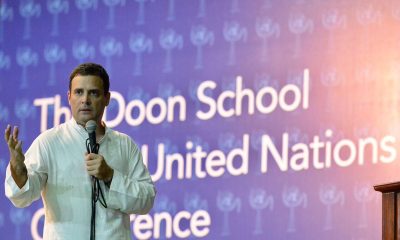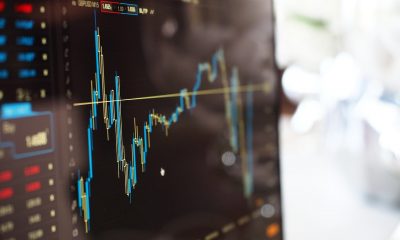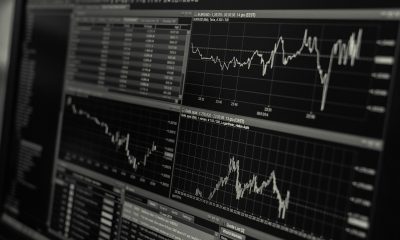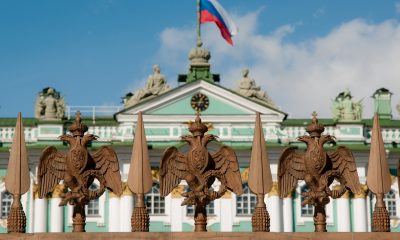Europe
Public spending spat in Denmark: Defense Minister Nicolai Wammen under criticism for choice of new APC
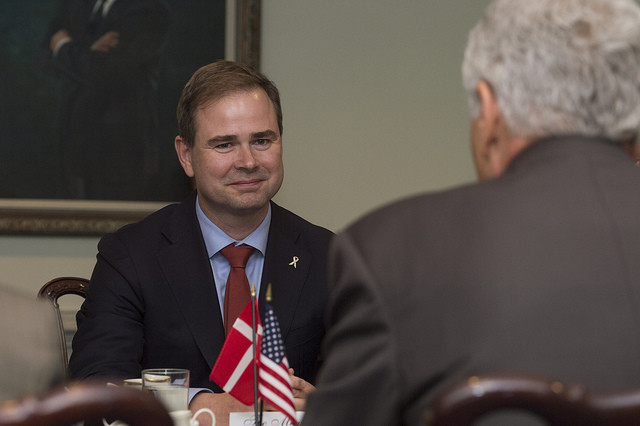
flickr/secdef
Every decision a politician makes represents danger to his or her career. In a recent project to upgrade the Danish army’s equipment, Nicolai Wammen, Denmark’s Defense ministry, has come under intense fire for its odd and shady choice. And yet, mainstream media haven’t addressed the mystery, despite there being a good story here. Is media silence on the matter bought with subsidization?
“Total amateurism” and “scandal of unseen dimension”, summed up (1) Troels Lund Poulsen, spokesman on Defense from the Liberals party. After brewing the deal for months, Denmark made its final decision (2) on which armored personnel carrier it would choose to replace its old fleet of Bradley M113. And on April 30th, 2015, the Piranha 5 from GDLS was chosen. Almost instantly, doubts were cast on the decision to resort to that specific vehicle. The response to those doubts also appeared suspicious, as both the government and the media went silent on the matter, as if they didn’t want it to get any attention.
The Danish Defense blog, Nytkampfly, an alternative yet reliable source, voiced its assessment on the deal (3). While it praised the choice of wheeled vehicles over tracked ones (3 of the 5 contenders were tracked), for its speed and flexibility, it was surprised at the choice of GDLS’s product, as it bluntly contradicted a Defense purchasing policy which is in place in Denmark, as it is in many other countries. Most Western or NATO-aligned countries choose to purchase off-the-shelf products which are already fielded in allied armies. The advantages yielded by this policy are many : soldiers and operators will know, from allied experience, what the vehicle is worth in real conditions; the cost of purchasing the equipment is much lower (as the manufacturer is selling large volumes), and operational maintenance is far easier, as troops on the battlefield can supply each other with parts and mechanics. Without this policy, armies would play Russian roulette every time they buy new equipment, and find out at their expense if the piece of kit has been properly designed or not; as well as make their maintenance and operational costs soar.
The NH-90 was sidetracked from the shipborne helicopter replacement project, in keeping with this policy. Too few allied or NATO countries used the helicopter and it was judged too likely that operational and maintenance problems could occur, or that expenses could quickly bloat.
This discrepancy was therefore noted by some defense experts, who sought clarifications on the deal. The government gave none and the mainstream media gave none. And that type of freezing-up will alert any dogged journalist, whether in a news agency or on a specialized blog: they know how to pick up on fishy details.
The reason for the blackout came out a few weeks later: the deal had been poorly designed (4), as the financial chapter securing had been overlooked. The purchasing contract was concluded in Swiss francs, a currency which has suffered substantial instability lately, and the Danish government hadn’t deemed necessary –or simply forgot!- to sign an exchange rate coverage contract. As a result, within a week, the cost of replacing the vehicles had already jumped by 16% (ie USD 50 million, on a contract worth over USD 450 million (5)) with no guarantees on where it could go. Given the Danish ambitions to boost their participation to allied operations and their diplomacy, such a blunder could lead to hindering Danish Defense capabilities.
The next chapter of the saga lies in media silence. Given that the Greenland (a Danish territory) Prime Minister Aleqa Hammond (6) had to resign over the misuse of a mere 18 000 dollars, one can only imagine the echo such a large (and avoidable) expense would have instantly hit headlines. And yet, nothing. Not a word from large newspaper and news agencies.
For the Nytkampfly blog, the reason is obvious: public subsidies (7), which can reach USD 3 million, and allow the government to keep a grip on media. The link between governments and media is under close scrutiny in Western countries. Governments gladly hand out subsidies, in the form of “support for media liberty of expression”. But if those budgets can be allocated, they can also be suppressed and therefore represent a lever on the press.
Perhaps the Danish government is simply stalling for time. Now that the flawed contract has become apparent to all, it isn’t impossible that Defense Minister Nicolai Wammen is sandbagging in order to give time to his teams to find ways to pull out of the deal or re-start the project. It would, after all, be the logical way to recoup the millions of dollars of public money lost. If that is the case, the next round will be rough: GDLS has shown pretty aggressive business ways in past deals. In the deals of the Santa Barbara Ascod 2, in the British FRES-SV (8) for example, GDLS tried to back out of signed clauses
20 years ago, the scandal would have flown under radar. Mainstream media, with their television reports and paper print, would have drowned out any critics of the deal. But in the day and age of instant information on the web, a simple blog will get as much traction and magnitude as a large news agency. A shift in information management which should bring far more transparency into political decisions.
(1) http://jyllands-posten.dk/politik/ECE7746812/Kurshop+kan+blive+en+bombe+under+milliardk%C3%B8b+af+nye+panserk%C3%B8ret%C3%B8jer/
(2) http://www.defensenews.com/story/defense/land/vehicles/2015/05/05/general-dynamics-secure-afv-deal-but-danes-cancel-155mm-competition/26926019/
(3) http://nytkampfly.dk/archives/7000
(4) http://nytkampfly.dk/archives/7000
(5) http://jyllands-posten.dk/politik/ECE7746812/Kurshop+kan+blive+en+bombe+under+milliardk%C3%B8b+af+nye+panserk%C3%B8ret%C3%B8jer/
(6) http://www.thelocal.dk/20141001/greenland-government-in-tatters-over-expenses-scandal
(7) http://nytkampfly.dk/archives/7062
(8) http://archive.defensenews.com/article/20140913/DEFREG01/309130027/British-MoD-Reconsiders-Assembling-Scout-UK
Europe
Barcelona and Athens: cities that will leave an everlasting impression

Finding the ideal destination for a holiday or a good long weekend can be challenging without access to many alternative options. Luckily, there are cities that need no introduction to know that they hold the solution; such is the case with Barcelona, in Spain, and Athens, in Greece, which you should always have at the top of your list of potential places to visit.
Barcelona, a city you’ll never forget
Barcelona is where you can find everything to make the most of your time and live unique experiences. Just go online and search for a city guide of Barcelona to review everything and start planning your trip.
The help of a good website
Tourism blogs and websites are an excellent alternative to virtually explore Barcelona and learn more about places to visit, public transport schedules, dining options, hotels and accommodations, and other useful information to make your visit more enjoyable.
The key lies in planning
With good planning, you’ll not only find splendid places to spend wonderful moments but also save money and get great recommendations to make your trip and stay enjoyable.
Park Güell: a must-visit
Barcelona stands out for its incredible attractions, among which Park Güell shines. Just read more about this interesting place to fall in love with it and make this visit mandatory.
What is Park Güell?
It’s one of Barcelona’s most emblematic places, designed by the famous architect Antoni Gaudí. Originally conceived as a housing development and later converted into a public park.
Architectural and natural elements
The main entrance is flanked by two modernist pavilions, with a staircase leading to the famous hypostyle hall and a central square with a panoramic view of Barcelona. Additionally, it features over 17 hectares of gardens, viaducts, and winding paths, integrating architecture with the natural landscape.
Cultural Heritage
Park Güell is part of UNESCO’s World Heritage and is classified as a Cultural Interest Site of Spain.
Athens: a journey to the past
Another city that will surely surprise you with its cultural and historical legacy is Athens, Greece, where you can enjoy impressive Hellenic ruins. It’s advisable to visit an Athens travel guide on the internet before you go to learn about everything and better organise your visit.
Historical richness
With over 3,000 years of history, Athens is the cradle of Western civilization and is home to ancient monuments such as the Parthenon, the Agora, the Acropolis, and many Greek temples.
Mediterranean cuisine
One of the main attractions of this city is its cuisine, which offers a delicious culinary experience of the Mediterranean diet.
Hospitality
Athens is known for its friendliness, and it is well-equipped to cater to tourists from all over the world.
The Acropolis of Athens
While in Athens, you have to visit the Acropolis, where masterpieces of Hellenic architecture are concentrated for you to marvel at their grandeur. Keep in mind that it is a highly visited site, so you should book now to secure access for your visit.
Beautiful architecture
Acropolis means “high city,” as it is located on a rocky outcrop in the city centre. Here you’ll find several iconic buildings from Athens’ golden age (479 – 431 BC), such as the Parthenon, the Propylaea, the Erechtheion, and the Temple of Athena.
Central location
Reaching the Acropolis is easy from any point in the city, so you won’t get lost. From there, you’ll have panoramic views of the city spreading out at your feet.
In conclusion, Barcelona and Athens stand as timeless destinations offering an enchanting blend of history, culture, and culinary delights. Whether exploring the iconic landmarks of Barcelona or delving into the rich historical tapestry of Athens, these cities promise unforgettable experiences for travellers seeking adventure and discovery. With careful planning and the aid of modern resources, embarking on a journey to these vibrant metropolises ensures a truly memorable escape.
Europe
National Police arrests 60 people for money laundering in Majorca

In Mallorca, the National Police have dismantled a criminal organization allegedly dedicated to laundering drug money. According to preliminary investigations, those involved are alleged to have laundered more than one million euros over the last year.
At the moment, the authorities have arrested a total of 60 people for the alleged crimes of money laundering and false documentation. Although investigations are still ongoing, leading Spanish criminal lawyers have pointed to the possibility of an increase in the amount of money laundered.
In addition to this, specialists in Criminal Law and Financial Crimes such as Luis Chabaneix have pointed out that during the next few days the number of arrests could increase, both in Madrid and in Mallorca. It should be noted that of the 60 arrested, 55 were arrested on the island and the other five in the city of Madrid on Sunday, May 16.
Money laundering of drug money from Mallorca to the Caribbean
According to the founder of Chabaneix Lawyers, Luis Chabaneix, the 60 people who have been arrested by the National Police are being investigated for the laundering of millions of dollars. It is presumed that more than one million Euros from drug trafficking activities have been sent to Latin American countries such as the Dominican Republic and Cuba, and even shipments to the United States have been registered.
In these countries, the money diverted by the criminal association has been used for the purchase of real estate and vehicles. For this reason, the National Police is in permanent collaboration with the North American, Cuban and Dominican authorities in order to dismantle the activities of this group in the different countries.
Likewise, among the main information provided by the authorities, it should be noted that more than 400,000 Euros in cash were seized from the hands of those arrested in Mallorca. Similarly, the police searches carried out on the island led to the seizure of multiple luxury items and accessories, a total of three kilos of cocaine and approximately 60 kilograms of cutting substances.
Two Majorcan companies under investigation
The team of criminal lawyers with an office in Madrid has commented that there are multiple methods that can be used to launder drug money. In the particular case of the criminal organization headed by a nationalized citizen of Cuban origin, one of the methods used to divert the money was international bank transfers.
For this purpose, the use of linked bank accounts of certain front men was a fundamental element. In addition, the case includes investigations of split money transfers through call shops.
On the other hand, through an official statement, the National Police informed that two Majorcan companies have been linked to the ongoing investigation. The reason for this is the issuing of fraudulent invoices for a value close to 200,000 euros.
Through these methods, the criminal organization has managed to launder capital inside and outside the country, legalizing large sums of money allegedly originating from drug trafficking. Undoubtedly, the arrest of the 60 people involved, including the leader of the organization, is a serious blow to the laundering of drug money in Spain.
Economy
Seasif’s Franco Favilla discusses the post-Covid economy and the price of gold
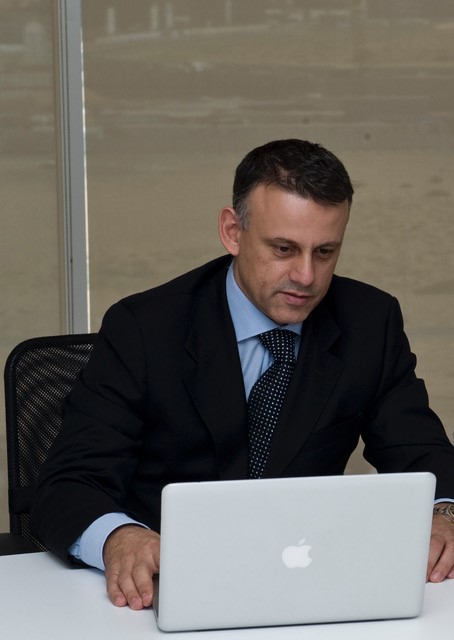
Although the Covid-19 pandemic isn’t over yet, there has been much discussion on the idea of a “post-Covid” economy, especially with the beginning of vaccination efforts in some countries. With markets throughout the world suffering the economic effects of the virus, experts have been looking towards the future –– and one of the topics that often comes up is the price of gold.
In August, the price of gold exceeded US$ 2,000 an ounce for the first time, driven by multiple factors. However, in November, advancements in Covid-19 vaccines led to a decrease in this trend, a result of the turbulent period we are going through.
“Regardless of the market volatility and the price changes that could occur over a given period of time, the fundamental fact is that the price of gold over the course of 2020 has reached an all-time high, and this, in my opinion, is very good news for the world economy,” explains Franco Favilla, founder and CEO of Seasif, a multinational company active in the extraction and trading of gold and oil.
According to Mr. Favilla, the main problem of the pre-Covid economy was the completely arbitrary nature of international finance. At one time, a ton of gold corresponded to a ton of currency, but since the 1980s, and at an impressive rate since 2000, the gap has widened enormously, so much so that today the relationship between the world’s currencies and gold is enormously unbalanced.
Total gold reserves around the world cover only 30% of currencies. This means there is nothing to cover and guarantee the value of money. In short, money has turned into a pure convention, a pure agreement between parties acting outside the market. Gold, on the contrary, guarantees democracy, because it protects savers and the market, offering an objective value for parameterizing every transaction.
“My hope, therefore, is that the crisis caused by Covid-19 will help to change finance, making it less ‘phantom’ and more linked to an objective dimension, based on gold, with obvious advantages for the real economy. Gold protects consumers, the most important component in any economic system: if you don’t have a market made up of consumers with a certain level of wealth, how can you sell? To whom? Consumer protection must come first, and gold is one of the main ways of protecting them,” states the CEO of Seasif.
Sustainability has also been at the forefront in discussions about the post-Covid world, as countries look towards establishing a more resilient global economy, one able to better withstand such events in the future –– and “green gold” may well be a part of that future. Green gold, in a sense, can be considered the “gold of the future” due to its ethical and sustainable extraction process. Seasif produces green gold, with a department entirely dedicated to green, and has allocated economic incentives to its continued production.
Even as 2020 draws to a close, the future may still look uncertain. But for those searching for greater security, gold may be one of the few certainties left.
-

 Travel12 months ago
Travel12 months agoImmerse Yourself in Nature: Explore Forest Bathing with a New Guidebook
-
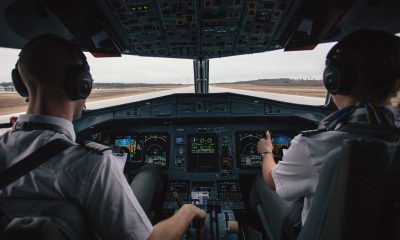
 Technology12 months ago
Technology12 months agoHow Virtual Fly Elevates the World of Flight Simulators
-

 Europe11 months ago
Europe11 months agoBarcelona and Athens: cities that will leave an everlasting impression
-

 Health11 months ago
Health11 months agoExperience in clinical quality: What is it, and why is it important?
-
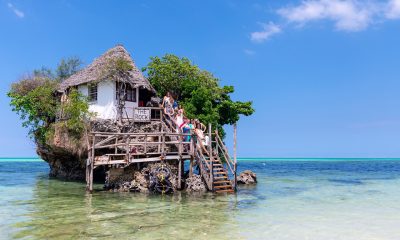
 Travel8 months ago
Travel8 months agoEnjoy a luxury holiday in Zanzibar
-

 Business8 months ago
Business8 months agoServiceNow Development Consultancy: Business Process Automation as Disruptive Technology
-

 Environment8 months ago
Environment8 months agoThe Future of Fashion: The Rise of Eco-Conscious Brands in the Luxury Market
-

 Culture and Lifestyle7 months ago
Culture and Lifestyle7 months agoDo you want to surprise a special someone?


